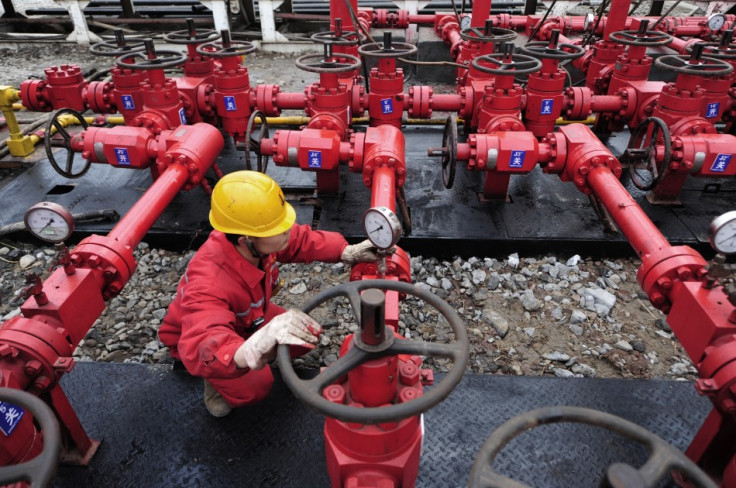Energy UK's Angela Knight: Shale Gas Revolution May Not Lower Energy Bills

Britain's prophesised shale gas revolution may not lead to lower energy bills for consumers, the head of the industry's representative body told IBTimes UK.
Energy UK chief executive Angela Knight, whose organisation represents the consumer-facing energy companies, said we still do not know exactly how much extractable shale gas lies on and around the UK's shores.
If drilling firms do start creating shale gas, through the controversial process of fracking, it may simply improve our energy security by diminishing our reliance on importing gas from volatile global markets, rather than push down prices for hard-pressed households.
The International Energy Agency has repeatedly called unconventional gas, such as shale and liquified natural gas, as an industry "game changer."
The US is a world leader in extracting shale gas and consumer energy bills have fallen as a result of its aggressive pursuit of the resource. The glut of unconventional gas has not only pushed down the prices of gas on the wholesale market but it has also kept gas prices lower for the consumer.
"That is what everybody wants. They want a downward pressure on gas prices," said Knight.
"We're very much part of a world market. Whereas of course in some respects what has happened in the US is because they are not in the same sort of position to export and import and connect up across the continent in the way we are. It's very localised.
"They have, therefore, used the gas they found form shale locally. That has had a massively downward pressure ultimately on the cost of generation and the price of electricity.
"We are connected to the rest of the world and we are importers, so if we are import displacing we will still be at a world price, but we will be more energy secure."
Prices could come down because of the revival of the coal industry in some countries which means there is "a huge amount of low cost coal flowing around the world," said Knight.
This may take the pressure off gas prices.

Fracking and environmental concerns
Shale gas is found in shale rock. It can be extracted by fracking, which is the fracturing of the rock by drilling into it and blasting through the hold with high-pressure water and chemicals. Once the gas is released, it is tapped.
There are a number of environmental concerns, such as the toxic chemicals used in the fracking process leaking out on land and water where this is taking place. The blast as rock is fracked has also caused minor tremors.
"You certainly can't walk away from the environmental concerns at all. Especially when you are looking at extraction of anything in what is a crowded island, so there's that aspect of it," said Knight.
"At the same time I think we need to be very careful that we don't fall into one of those traps that says renewables good, fossil fuels bad. Therefore because it's a fossil fuel, it's bad.
"That tends to take the debate away from practicalities and into emotion. The discovery and then use of shale gas in the US has done a tremendous positive for reducing emissions from there.
"In effect, the displacement that has happened there of coal by shale gas has had a dramatic improvement in a number of environmental areas. That is an example of how the use is beneficial."
How much shale gas is in the UK?
Early estimates from the government estimated that there were 150m cubic metres of shale gas reserves in the UK.
A new British Geological Survey is due imminently and expected to far outstrip the initial guess.
There are suggestions that there is enough shale gas in the UK to power the country's electricity for 100 years. It could create as many as 30,000 jobs.
A recent block on shale gas exploration was lifted by the government as fears over its seismic effects eased. Chancellor George Osborne also announced a number of tax breaks for the shale gas industry in his latest budget, to encourage firms' research and development in the resource.
"Our view is that two things need to take place. The first is assess just what there is in the UK in respect of shale gas reserves. Secondly, look to see what of it is extractable," said Knight.
"At the moment we don't have the answer to either."
Knight said that there is a lot of hype around the shale gas potential not just in the UK, but across the rest of Europe.
"Just like many other areas, particularly of science, the hype comes early, then there's a long period of development process, and then we'll see," she said.
"We're only really at the start of that long period of development process."
Action must be taken on the mooted technological development in the use of gas as a fuel for electricity.
"We've talked long and hard about the carbon capture storage. It's about time the talk became a reality," said Knight.
Carbon capture and storage is a way of collecting and safely storing carbon dioxide waste.
"I'm no technician, but the more that the engineers look at some of the issues on how to reduce and improve the combustion process, I would not be at all surprised if they can't shift gas into being a cleaner fuel than it is today," she said.
Related Articles:
UK Government Lifts Fracking Ban for Shale Gas
Dan Byles MP: Shale Gas Could Create 30,000 Jobs and Secure UK Energy [VIDEO]
© Copyright IBTimes 2024. All rights reserved.






